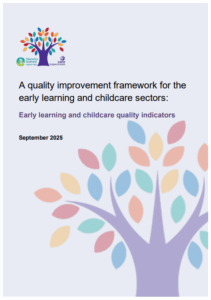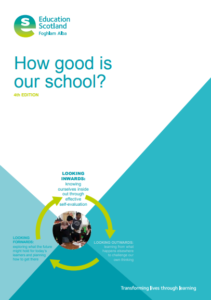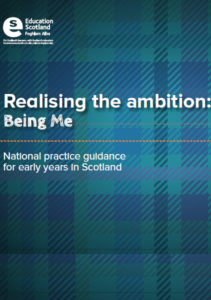Playing, Learning and Developing – p29 Child-Centred Planning and Assessment
We use observations of individual children’s patterns of play to plan, support, challenge and extend their learning. This enables children to make progress at their own pace
Careful observations and effective assessments recognise and promote children’s progress and achievements. Any additional supports are identified, planned for and implemented. Our highly responsive approach ensures children are developing a broad range of knowledge, understanding and skills for life and learning.
p30
We work together with children, families and partners, inviting them to share their knowledge. This deepens our understanding and planning for each child’s learning journey. We share updates on children’s progress and celebrate their successes and achievements.
p31
How well do we support staff in undertaking their role in planning for and evaluating children’s progress?
How effective are our processes to evaluate children’s development, progress and achievements? How well does this information gathered about children’s progress inform our planning and reporting to parents/carers and others?
Learning, Teaching and Assessment – p41 Planning and Assessment
Working with parents/carers, children, partners and colleagues, we gather a relevant range of information about children and their prior learning. We are highly skilled in observing and documenting children’s significant learning and achievements. Together this robust assessment information provides reliable evidence about children. We use this to form a holistic picture of the child and make accurate judgements about children’s progress and future learning.
Our approach to documenting learning empowers children to talk about their achievements and consider what they might learn next.
Our staff use assessment information with children and their parents/carers to plan appropriate next steps to help children continue to make progress and deepen their learning. Through talking together with colleagues within and beyond our setting, we have a shared understanding of children’s progress and achievements as they grow and learn.
p43
In what ways do we use our assessment information to inform planning for children’s
learning? How effective are we at involving parents/carers?



